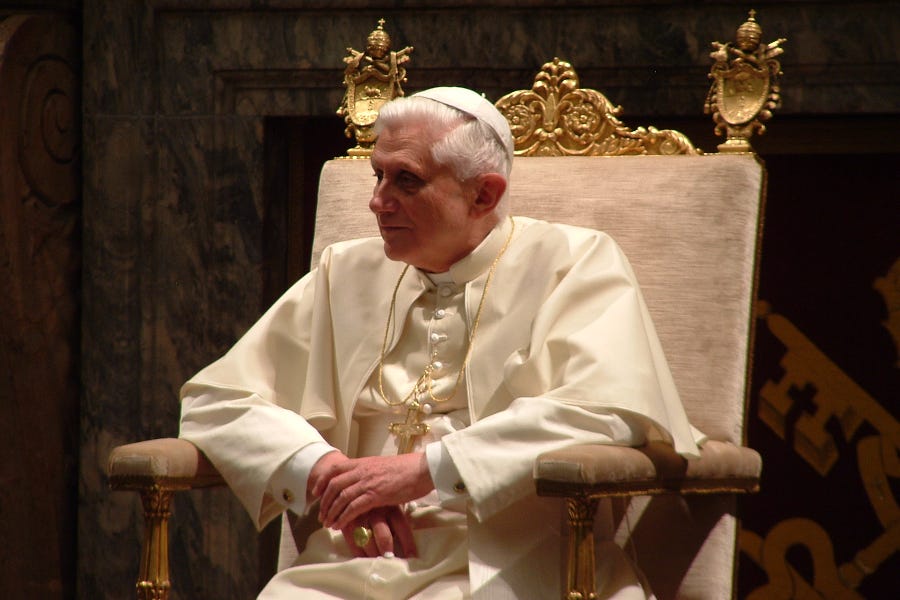How ‘Wir sind Papst!’ became a headline for the ages
A German court has ruled the 2005 headline is protected by copyright law.
Hours after Cardinal Joseph Ratzinger was elected pope in 2005, the German journalist Georg Streiter came up with a headline that’s still remembered almost 20 years later.
Streiter, the political editor of the Bild newspaper, condensed Germany’s excitement at the election of its first native son in 482 years into three words: “Wir sind Papst!” (“We are pope”).
Bild’s front-page headline on April 20, 2005, the day after Pope Benedict XVI’s election, brought a smile to the faces of millions of Germans and was shared around the world.
Streiter died in August this year, at the age of 68, but his headline lives on. German media reported this week that a court in Hamburg recently ruled that “Wir sind Papst!” was a work of such creative merit that it was protected by copyright law.
Why did the headline become an instant classic? What was the court ruling about? And are we likely to see such a catchy headline again?
Cult status
The headline didn’t work simply because it was concise. The left-leaning Die Tageszeitung also went for a three-word headline that day — a despairing “Oh, mein Gott!” (“Oh, my God!”) against a black background — but few remember that.
“Wir sind Papst!” had a celebratory quality. It also played wittily on other “Wir sind…” phrases familiar to Germans, such as “Wir sind Weltmeister” (“We are world champions”), used whenever Germany wins the soccer World Cup.
Perhaps the headline was also gently sending up the international Catholic reform movement We Are Church, known in Germany as Wir sind Kirche, whose members weren’t exactly thrilled by the Vatican doctrinal czar’s election.
Literary types have praised the headline for using the rhetorical device known as totum pro parte (“the whole for a part”).
Bild’s editor-in-chief Kai Diekmann later admitted he was unsure about the headline, as some in the newsroom felt it was too nationalistic. He said he called two predecessors for advice.
“And one said do it. And the other said under no circumstances,” he recalled. So he gave it the thumbs-up.
The initial reaction was negative. But spurred on by the blogger Malcolm Bunge, Germans began to post photos of themselves accompanied by the words “Wir sind Papst!” A week after its publication, Bild ran an article entitled “Eine Schlagzeile wird Kult” (“A headline achieves cult status”). It had indeed.
Wir sind in court
According to the website katholisch.de, the Higher Regional Court of Hamburg was recently asked to rule on a dispute between the Axel Springer media company, which owns Bild, and the stock photography company Alamy.
Alamy reportedly offered its users two images with the “Wir sind Papst!” headline, one a cropped version of the April 20, 2005, edition of the Bild newspaper, the other a photo of a giant poster of the front page that hung on the facade of Axel Springer’s offices in Berlin during Benedict XVI’s visit in 2011.

